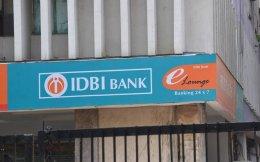Over the last few quarters, public sector banks’ (PSBs’) share in lending to micro, small and medium enterprises (MSMEs) has reduced drastically. This has largely been due to the growing number of non-performing assets (NPAs) across PSBs, instability in the rupee's value, and trade deficits.
According to a quarterly report by TransUnion Cibil and Small Industries Development Bank of India (Sidbi), the contribution of the 21 PSBs in the country stood at 50.7% at the end of June 2018, down from 55.8% a year earlier and down from 59.4% at the end of June 2016. The overall growth in bank credit also fell to 12.5% at the end of September 2018, from 13.5% a year earlier.
As trends indicative of rising inflation began to appear, the Reserve Bank of India (RBI), in August 2018, increased the repo rate for lending from 6.25% to 6.50%. As a result, a large number of public and private sector banks soon increased their Marginal Cost-based Lending Rates (MCLRs). These developments will undoubtedly have significant implications for an already stressed MSME sector, as a report by Investment Information Credit Rating Agency Ltd (ICRA) puts the total credit supply deficit for the MSME sector at Rs 25 trillion.
How NBFCs are contributing to MSME sector’s growth
One of the major factors that has contributed to the exponential growth of non-banking financial companies (NBFCs) is the growing stress of NPAs and financial frauds in the banking sector coming to light over the past several months. An increasing number of NBFCs are stepping in to fill this gap, giving somewhat of a respite to many small and medium enterprises (SMEs) in the country, allowing them to access credit in order to carry out smoother operations.
MSME lending by private-sector NBFCs grew 23.4%, while PSBs saw a growth of 5.5% for the year to June 2018, said the quarterly report by TransUnion Cibil and Sidbi. In addition, the overall credit supply to the MSME sector grew 16.1%. Over the past few quarters, NBFCs are growing their loan books at an exponential pace, aided by more flexible operating methods enabled by their adoption of technology for loan processing and credit underwriting. As a result, the turnaround time (TAT) for processing loans has become much shorter for NBFCs. Two years ago, it took an average of 26 days for NBFCs to disburse credit to MSMEs from the date on which the query was generated. However, the TAT on MSME loans has now come down to 18 days, according to the TransUnion Cibil-Sidbi report. On the other hand, the TAT for PSBs has reduced from 41 to 31 days, which is still significantly higher than NBFCs.
The report also highlights that another key factor that has contributed to the reduced lending by PSBs to MSMEs is the rising delinquency rates on loans. This has especially been the case for loans below Rs 10 lakh, which are usually availed of by ultra-small businesses. This is where NBFCs come in, leveraging technology to create evolved and efficient credit underwriting models and taking better lending decisions to bring down delinquency rates for their MSME portfolios. Consequently, TAT has also reduced for the low-ticket micro loans, which make up a majority of the MSME lending portfolio for both banks as well as NBFCs. Further, the cumulative value of outstanding credit in the formal lending sector has risen to Rs 101 trillion as of June-end 2018, according to the report, with the share of MSME loans currently at Rs 22.8 trillion.
All of this indicates a massive potential that lies in integrating technology with back-end process such as loan processing and credit underwriting. Leveraging technology extensively, then, can help more NBFCs not only target higher growth in MSME lending, but also significantly improve the quality of credit managed by these institutions.
Vivek Tiwari is managing director and chief executive of Delhi-based non-banking financial company Satya MicroCapital Ltd (formerly known as TFC Finvest Ltd), which was incorporated as a limited firm in 1995. His views are personal.






